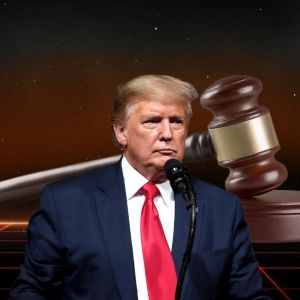PBS and NPR sue Trump over defunding orders
3 min read
PBS and a public television station in rural Minnesota filed a lawsuit on Friday against President Trump to stop his executive order demanding that the Corporation for Public Broadcasting cut all funding for the network. PBS claimed that the order sought to use the federal government’s power to punish PBS, whose content Trump argued was biased against conservatives. PBS was joined as a plaintiff by one of its stations, Lakeland PBS, which serves rural northern and central Minnesota areas. The lawsuit said Trump’s order was an “existential threat” to the network. A PBS spokesman said the station concluded it was necessary to take legal action to safeguard public TV’s editorial independence and to protect the autonomy of PBS member stations. Trump ordered the Corporation for Public Broadcasting and federal agencies to stop funding the system. Through the corporation alone, the network received roughly $325M this year, most of which went directly to individual stations. PBS also disclosed that 22% of its revenue came directly from the feds. PBS disputes charged assertions in the ‘strongest possible terms’ BREAKING – YOUR REACTION: @PBS sues Trump, citing First Amendment violations over taxpayer funding. The public broadcaster claims the May 1 order cutting its funding infringes on its constitutional rights. pic.twitter.com/6eY56cErDQ — Simon Ateba (@simonateba) May 30, 2025 PBS’ lawyer, Z.W. Julius Chen, wrote in the suit filed in the U.S. District Court in Washington that the station disputed Trump’s allegations in the strongest possible terms. The suit alleged Trump’s order was unlawful, exceeded his authority as president, and violated Constitutional protections of free speech because he had made clear he did not like PBS’s news coverage and programming. The station stated that for Minnesota residents, the order threatened the “Lakeland Learns” education program and “Lakeland News,” described in the lawsuit as the only television program in the region providing local news, weather, and sports. The network also disclosed that the U.S. Department of Education had canceled a $78 million grant to the system for educational programming, which would have been used to make children’s shows like “Sesame Street,” “Clifford the Big Red Dog,” and “Reading Rainbow.” “Trump’s order would have profound impacts on the ability of PBS and PBS member stations to provide a rich tapestry of programming to all Americans.” – Z.W. Julius Chen , PBS Lawyer PBS claimed that its action challenged an unnecessary presidential directive attacking it and its member stations in a manner that would tumble public television. It added that the order made no attempt to hide the fact that it was cutting off the flow of funds out of a desire to alter the network’s content. Trump’s administration receives another lawsuit from NPR Trump recently described what NPR published as left-wing propaganda and ordered the CPB to cut the network’s federal funding. However, the CPB clarified that the president had no standing or power to issue the executive order. NPR and three Colorado public radio stations also argued that Trump admitted he was using his power to target the station because he disagreed with the content of their speech. The lawsuit also argued that Trump’s executive order was “textbook retaliation” and “viewpoint-based discrimination.” It explained that the government’s targeting of not just the substance of speech but also a speaker’s particular views was presumptively unconstitutional. Katherine Maher, NPR’s CEO, said it was not right that Trump’s order sought to force the network to adapt its journalistic standards and editorial choices to the preferences of the government if it was to continue to receive federal funding. However, NPR media correspondent David Folkenflik confirmed that the Corporation of Public Broadcasting had not yet frozen money. The lawsuit made a strong case that the Trump administration lacked the power to direct the CPB to stop funding it. It also noted that, even if the CPB did, Trump’s efforts violated the First Amendment rights of the station and its listeners. NPR also argued that Trump violated the Public Broadcasting Act because he could not, by an executive order, tell the CPB to stop funding it. The station also claimed that the executive branch did not have the constitutional power to tell the CPB to stop funding it. The Constitution gives Congress, not the president, spending power. Cryptopolitan Academy: Want to grow your money in 2025? Learn how to do it with DeFi in our upcoming webclass. Save Your Spot

Source: Cryptopolitan



